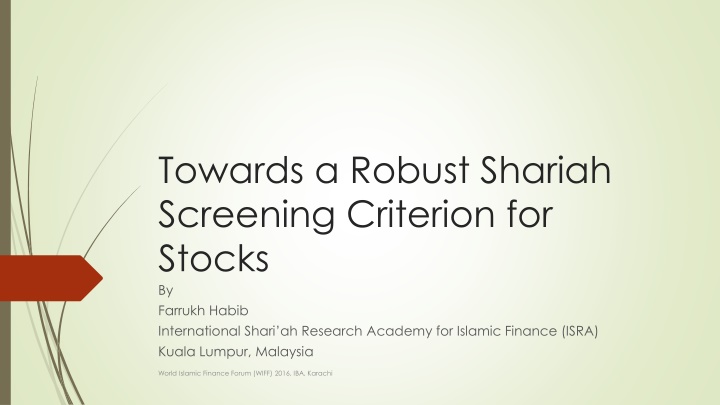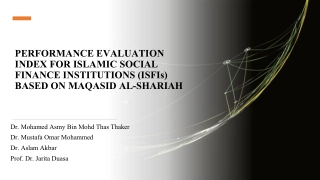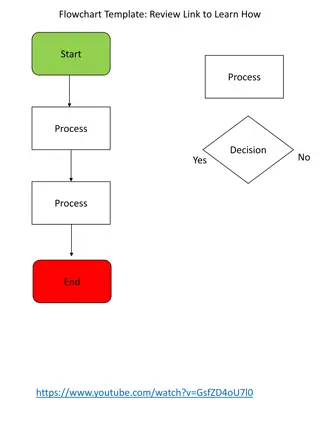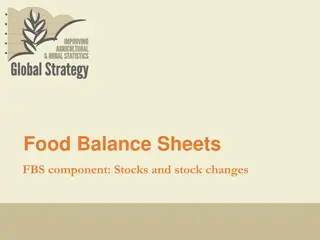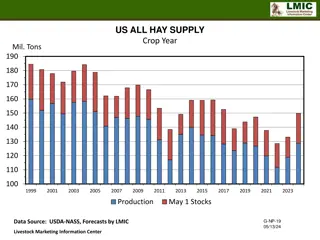Robust Shariah Screening Criterion for Stocks by Farrukh Habib
International Shariah Research Academy for Islamic Finance's publication discusses a robust screening criterion for stocks, presented at the World Islamic Finance Forum 2016 at IBA, Karachi.
Download Presentation

Please find below an Image/Link to download the presentation.
The content on the website is provided AS IS for your information and personal use only. It may not be sold, licensed, or shared on other websites without obtaining consent from the author.If you encounter any issues during the download, it is possible that the publisher has removed the file from their server.
You are allowed to download the files provided on this website for personal or commercial use, subject to the condition that they are used lawfully. All files are the property of their respective owners.
The content on the website is provided AS IS for your information and personal use only. It may not be sold, licensed, or shared on other websites without obtaining consent from the author.
E N D
Presentation Transcript
Towards a Robust Shariah Screening Criterion for Stocks By Farrukh Habib International Shari ah Research Academy for Islamic Finance (ISRA) Kuala Lumpur, Malaysia World Islamic Finance Forum (WIFF) 2016, IBA, Karachi
Current Shariah Screening Criteria The Shariah screening criterion of ASIIP and KMI-30 consists of mainly six filters. They are: 1. Business of the Investee Company 2. Non-Compliant Income to Total Revenue, <5% 3. Non-Compliant Investments to Total Assets, <33% 4. Interest Bearing Debt to Total Assets,<37% 5. Illiquid Assets to Total Assets, >25% 6. Net Liquid Assets/Share Vs Market Price/Share
Explanation and Purpose of the Screening Criteria Categories Of Filters Name Of Filters Purpose Of Filters Benchmark Of Filters Compliance Filters Business of the Investee Company To exclude companies with impermissible or unethical core business Businesses based on interest or riba (i.e. conventional banks), gharar (i.e. Insurance companies), gambling (i.e. casinos), manufacturers or traders of impermissible products (i.e. liquor, pork, haram meat, etc.); while tobacco, and arms and weaponry businesses are excluded on ethical grounds; Non-Compliant Income To Total Revenue To control interest and other types of impermissible income Impermissible + Interest Income < 5% Of Total Revenue Non-Compliant Investments To Total Assets To control involvement in non- compliant investments & interest taking deposits Non-Compliant Investments & Interest Taking Deposits < 33% Of The Total Asset Interest Bearing Debt To Total Assets To control interest bearing debt Interest Bearing Debt < 37% Of The Total Asset Tradability Filters Illiquid Assets To Total Assets To ensure that illiquid assets are in substantial amount Illiquid Assets > 25% Of The Total Asset Net Liquid Assets/Share Vs Market Price/Share To ensure that liquid assets are sold at par Market Price = Or > Net Liquid Assets
Recommendation for Reconsidering the Benchmarks of Compliance Filters All the benchmarks of compliance filters should be based on the concepts of removal of hardship and genuine dire need. 1. A study by Khatkhatay & Nisar (2007) found that 5% benchmark for interest and impermissible income is too liberal for the companies in BSE 500. 2. The benchmark of 33% for non-compliant investment to total asset is based on the concept of one-third being majority which has been derived from a hadith regarding bequest. The hadith is as: Sa`ad Bin Abi Waqas narrates: I said: O Allah's Apostle ( )! May I bequeath all my property (in charity)? He said: No. I said: Then may I bequeath half of it? He said: No. I said: One third? He said: Yes, one third, yet even one third is too much. It is better for you to leave your inheritors wealthy than to leave them poor begging others, and whatever you spend for Allah's sake will be considered as a charitable deed even the handful of food you put in your wife's mouth. (Al-Bukhari, 2001, hadith # 2742) The analogy seems to be far-stretched. It has to be based on the actual need of concession. 3. The basis of the benchmark of 37% for interest bearing debt to total asset is not clear. It cannot be based on the concept of one-third being majority. Moreover, it is more liberal than the benchmarks of other international institutions, like AAOIFI, Securities Commission Malaysia, Dow Jones Islamic Market Index, S&P, FTSE and MSCI.
Shariah Basis of the Tradability Filters Fudhalah Bin `Ubaid reported: I bought on the day (of the Victory of Khyber) a necklace for twelve dinars (gold coins). It was made of gold studded with gems. I separated (gold from gems) in it, and found (gold) of more (worth) than twelve dinars. I made a mention of it to Allah s Apostle ( ), whereupon he said: It should not be sold unless it is separated. (Muslim, n.d., hadith # 1591) There are mainly two reasons for disallowing such sale: (1) the exact amount of gold in the necklace was unknown, and (2) equality in exchanging the same genus was not observed. The could be allowed if it fulfils the following conditions: 1. Mutual possession within the contract session 2. Knowledge of the exact amount of ribawi items 3. Some commercial value of the non-ribawi item 4. The price should be higher than the value of the ribawi item in the object of sale, so that the ribawi item could be exchanged at par
Recommendation for Removing the Tradability Filters There is a vast difference between a share of a company and a mere object consisting of ribawi and non-ribawi items. 1. A share of a company is, more importantly, represents the company itself, its main business activities, human management, ability to produce and future prospects of generating revenues (Aal Sheikh, 1979; Al-Manea, 1996; Al-Qurahdaghi, 2003). 2. It is very controversial in legal theory whether or not a share represents the assets of the company (Manjoo, n.d.; Goulding, 1996; Abbasi, 2009; El-Gari, 1998; 2015). The case of sale of necklace mentioned in the hadith is different from share trading. 1. A share also represents receivables of the company which is sale of debt to a third party, while the sale of necklace does not cover the issue of sale of debt. 2. The case of sale of necklace mentioned in the hadith also has two other conditions of mutual possession and knowledge of the exact amount of ribawi item that need to be fulfilled. Those two conditions are neither mentioned in the criteria, nor are they feasible to be imposed. Many scholars, like Aal Sheikh (1979), Al-Manea (1996), Al-Qurahdaghi (2003), Al-Shubily (2010), Al-Suwailem (2012), Al-Sanad (2012), Abu `Aliyu (2012), allow trading of shares without considering the condition of liquid and illiquid assets and their price as compared to the net liquid assets, because the assets are subsidiary in such transaction. In fact, Securities Commission Malaysia (2013) does not have any specific filter for liquidity in its criterion at all.
Recommendation for Introducing a New Filter The Messenger of Allah ( ) cursed the accepter of interest and its payer, and one who records it, and the two witnesses, and he said: they are all equal (in guilt). (Muslim, n.d., hadith # 1598) The filter of interest bearing debt to total assets only puts a restriction on the amount of debt itself that a company has borrowed, but it does not put a restriction on the amount of interest it pays on the borrowed loan. The main concern which provides the foundation of the filter interest bearing debt to total assets is the payment of interest, not the amount of debt. There is a need for a filter that could directly cater for the issue of paying interest. The proposed filter is interest expense to total revenue: Interest Expense to Total Revenue: (Interest Expense / Total Revenue)
Conclusion The objective of further growth of ICM in Pakistan is supported by the launch of ASIIP. The Shari ah screening criteria is the backbone of the ASIIP which needs to be more vigorous and comprehensive. Thus, it is recommended: 1. The benchmarks of the compliance filters should be reassessed by conducting a meticulous empirical research, as they seem to be too liberal. 2. The two filters of tradability (negotiability) can be removed from the criteria. 3. A filter of interest expense to total revenue should be included in the compliance category in order to cater for the purpose of controlling interest payment of a company.
And Allah Knows Best Thank You! Comments and Questions are welcomed
